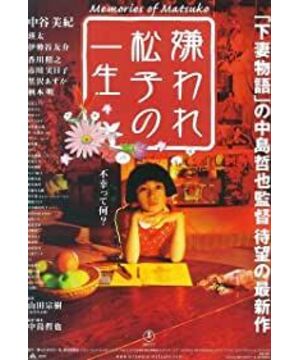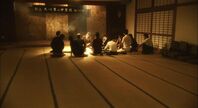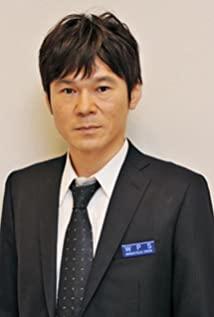Nor is her suffering because of unpleasant love.
At first, she rebelled against her father's eccentricity: she yelled to Jumi, "You are not pitiful at all!" In order to gain freedom, she left the home where she was entangled by illness and her father was depressed and depressed. Before she left home, she punished her sister and pinched her weak sister to the ground.
But for these three behaviors, she was punished extremely exceedingly: her father and sister were dead, and her brother did not forgive her for life. She couldn't get rid of this shame all her life. But is it really her fault?
My sister is suffering from a serious illness, and she may be able to live longer if she feels happy. But the pain in her mood was not caused by pine nuts, but by her father.
The father took this child too lightly (not too seriously) because of her illness, thinking that she could not share the joy of her sister’s love, and of course he could not live a good life. My father regarded Kumi as a completely useless person. Just imagine, what kind of life does Kumi, who always feel that she is useless, can't even be the partner of her sister's chat, is living? Jumi was set by her father to be alive to be alive and unworthy of a person with normal emotions. As for a person with a weak body and a closed living environment, she cannot receive the correct information, even she may think of herself the same way. So she lives with guilt for the whole family.
The pain of Matsuko and Jumi is the fault of his father. As the father, the man at the helm of the family ship, he soaked the whole family in misfortune.
I have a friend whose sister had a very serious illness when she was a child, and was a very weak child. Her mother always feels that she doesn't care about her, but loves her sister in every way, and treats her with anxiety all day long. Fortunately, my friend's father loves her very much, which allows her to develop a cheerful and outgoing personality. She never regarded her sister as an abnormal person. She often quarreled with her mother, always arguing why she didn't love me, always grabbing things with her elder sister, and arguing with her elder sister.
In fact, because of her quarrel, her sister gained the power to resist her mother's suffocating care (and discrimination). My sister was able to get married, work, and solve problems and difficulties on her own. And have the ability to point out what the mother is doing wrong. For people with illnesses, the right to "face difficulties" also needs to be fought for. Jumi didn't expect that Songzi realized a little, but she was not clear enough. She made a defiant behavior. After partial victory, she was severely punished and formed a complete failure: lifelong guilt.
In fact, this understanding could still be obtained at any time in her later life, but she did not achieve it. I will continue to talk about it below.
After the sister's death, his father suffered from the miss of Songzi leaving home, but he never tried to find her. He seemed silent and tough, but in fact he failed to deal with family relations in a mess. If the father can go to her, he can either blame her or tell her that he is forgiven. In any case, it would be a comfort to both of them. Isn't the father wrong? But these punishments have become Songzi's life's sins.
The mistake she made when she lost her job as a teacher was unreasonable. Because this doesn't fit Matsuko's personality, a person who left home because she hated the family atmosphere, wasn't she shouting "It's not my fault" when she pinched Jumi to the ground? It was obviously not her fault to steal this matter. Would a person with such a strong personality bear such a big black pot because he hates this trouble? Would such a cautious and delicate person forget to pay back the money he took from another teacher's wallet? When things come to the point and tell the shopkeeper that he is stealing, do you not stop it?
In particular, people who realize that they have been treated unfairly by their father will easily believe that Aaron, a stubborn student, will really admit his mistakes? She didn't get the fact that Aaron had already stolen, and she knew that he was the thief. Would she easily decide to believe it before this bigger issue?
This is just a bug in the tragedy of pine nuts. We saw that it was too miserable afterwards, and easily let go of this bug without going into the details. But it is obviously unreasonable. But now we accept this setting for the time being, otherwise this article won't be able to continue.
The first man she met, that colleague male teacher. Abandoned her because of the strange grimace and the sad experience. There is no way for such a man to share or share his life with Songzi, no matter what. At this time, pine nuts can be considered easy.
Her writer boyfriend is self-destructive and violent, because he cannot bear depression and embarrassment to commit suicide. No matter what Matsuko does, he can't save him. He is deeply emotional (maybe depression). A person with extraordinary talents cannot overcome the curse of his own melancholy, and this curse is not discussed here. But in any case, treating pine nuts in this way is very cowardly. His death was not Songzi's fault. Matsushita did not resist in this relationship, and was lost because of the fault of others.
So I think that the reason why Songzi later thought that the only writer who truly loved her was because she was the one who made no mistakes in this relationship. In this relationship, she forgave herself and accepted herself, so she was able to accept his death. This result. This "no mistake" relationship, even though it was so painful, and even though there would never be a future, she still felt that it was complete and left a warmth. So I said, Songzi has only one criterion for love, which is whether he is wrong. The feeling she pursues is to allow her to accept her feelings.
I just think that Songzi has a decisive and strong character. She tried to be a good prostitute. She didn't blink. She experienced a melancholy writer boyfriend and a coward's lover. She still decided not to hesitate to marry the ordinary person, the barber, and began to sing. She forgave her homicide, forgave her mistakes in being a lover, forgot the pain of losing her lover, and accepted the punishment of murder in prison calmly, without hesitation, and was ready to devote herself to life wholeheartedly.
When all this still failed, she still did not collapse, she became a hairdresser. Isn't all this the fiercest resistance: Destiny, please come to torture me, condemn me, and ruin me. But I am not dead. Because I don't want to die like this, I want to live a little bit more truthfully and steadily.
But with such a strong personality, rushing forward indefinitely, why ever stop and think about it, accepting yourself while not dying?
If there is any tragedy caused by Songzi's own reasons, I think it is not because she is obedient, but because she is too strong and never weak. Before she had time to think about it, before she could touch her real needs, a wrong answer appeared.
The answer is Aaron. Aaron is back. Because Aaron made a mistake to her when he was a teenager. As long as you forgive Aaron, you can forgive yourself. This answer is wrong in understanding the meaning of the question, and the question is too simple. ——Because it is easier to be mean to yourself than to forgive yourself. People tend to choose the simpler approach.
In Songzi's story, the reason why the audience has repeatedly misunderstood that she is just a woman who cannot woo her is also the reason. Because the answer is simple enough.
After accepting the true self, love can be the icing on the cake. It is no exception for pine nuts.
I'm so proud to say this. Women's rights in social life are too few and too narrow. The real society will accept this for a long time.
The fierce relationship with Aaron is an opportunity. She decides not to resist anymore like a writer, but to accept it, so that she can be accepted to herself. But the screenwriter wrote Aaron as an unbreakable coward.
The reason why our audience feels painful and unwilling to live is only because our desire to die is being promoted, because the melancholic and introverted personality of the Orientals is inspired, because we don’t want to believe in ourselves, so that the tragedy of our life can flow down. We see our partners. , I thought I was not so lonely.
No, don't accept all this naturally. We should not continue to condemn ourselves in other people's stories.
How can pine nuts not be so unlucky? The key lies in the screenwriter. The screenwriter took advantage of the emotions shared by these humans (especially Japanese and Chinese) to fabricate such painful stories and succeeded. Remember, that was his job, an excellent job, nothing more.
She is an unlucky person, and all her resistance has been severely punished. After being punished, she never had a chance to forgive herself. The reason why she is so unlucky is that the screenwriter did not arrange for her to forgive her, nor did she arrange for her to forgive herself, so her life would be like this.
In order to give us a fatal blow, the screenwriter finally asked her to cheer her up again and let her inexplicably die under the stick of a bad kid in the park. The more fatal blow was that she never had a real warm conversation with her nephew who could forgive her for understanding her.
In fact, I think Matsushita clung to her friend’s business card at the last moment, which means that she can face her glorious former friend. When she repented of what she did to Jume, she felt that Jume had forgiven herself. Energetic, determined to start again with the sick 53-year-old body-that is the end of suffering.
Although she once apologized for being alive, she was not reconciled at the moment of her death. Even if she died under a mess, she did not lose. She just died and didn't lose. This is a salvation, not a tragedy.
Life is not like in this movie, where we can't lift our heads up like a waterfall, and we will fall to the end. We have family, friends, the wisdom of our predecessors, and our own thinking. All of this can at least be the same.
The point is, maybe we have a hard time moving forward and feel like we are always upstream, but we have many opportunities to look up and take a breath, take a look at the scenery along the way, and enjoy our lifelong growth.
View more about Kiraware Matsuko no isshô reviews











